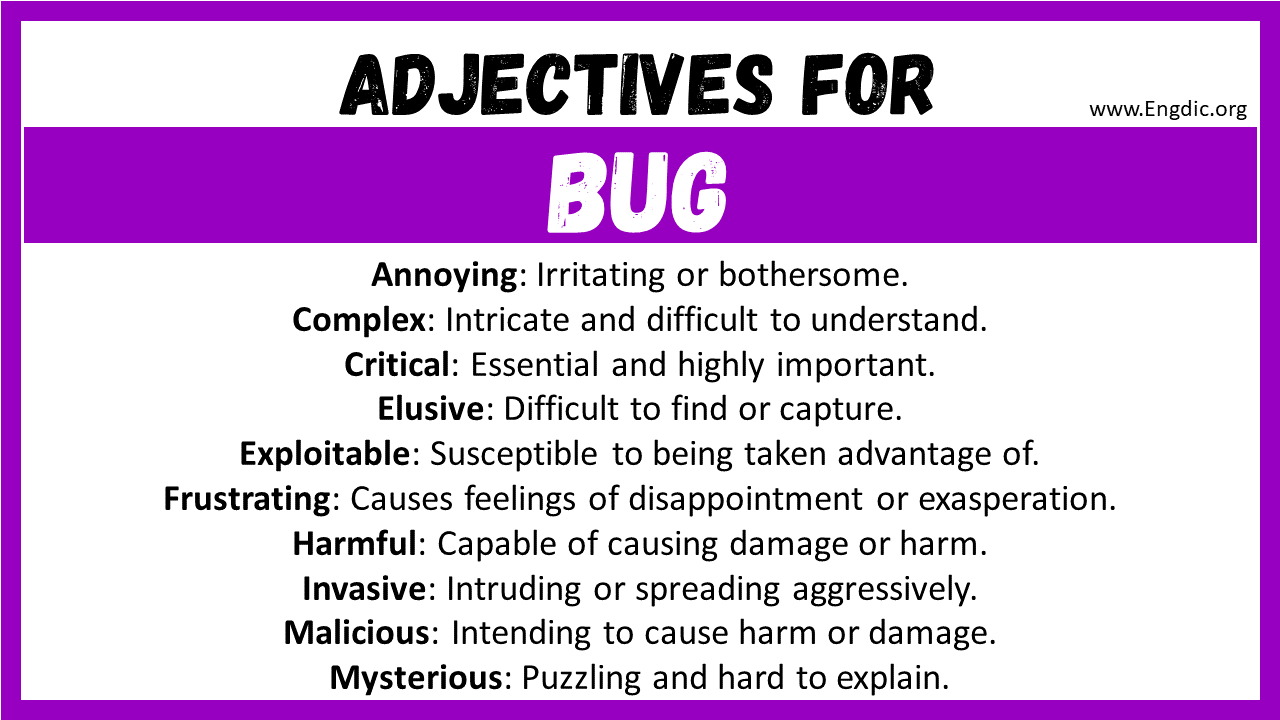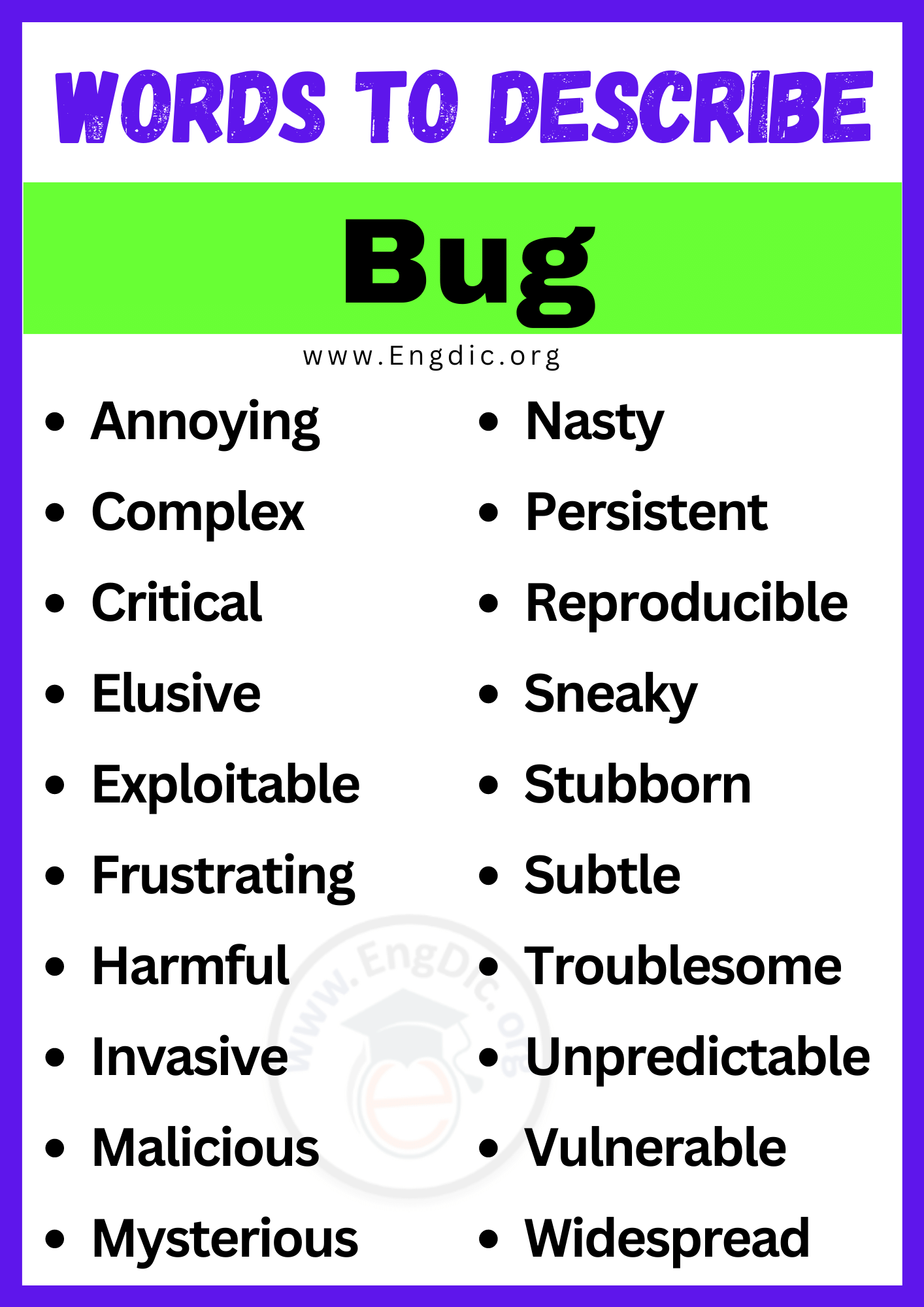In the vast realm of technology and programming, a “bug” is an unwelcome glitch or error that can cause havoc to software or systems. These pesky digital intruders can impede smooth operations and disrupt functionality, demanding swift resolution. Understanding the diverse words used to describe bugs is vital for effective communication between developers and testers. In this blog post, we’ll explore essential vocabulary that not only helps identify different bug types but also aids in conveying their specific attributes, facilitating smoother debugging processes and more efficient problem-solving.
Adjectives for Bug
Here are the 20 Most Popular adjectives for bug:
- Annoying
- Complex
- Critical
- Elusive
- Exploitable
- Frustrating
- Harmful
- Invasive
- Malicious
- Mysterious
- Nasty
- Persistent
- Reproducible
- Sneaky
- Stubborn
- Subtle
- Troublesome
- Unpredictable
- Vulnerable
- Widespread
Words to Describe Bug with Meanings
- Annoying: Irritating or bothersome.
- Complex: Intricate and difficult to understand.
- Critical: Essential and highly important.
- Elusive: Difficult to find or capture.
- Exploitable: Susceptible to being taken advantage of.
- Frustrating: Causes feelings of disappointment or exasperation.
- Harmful: Capable of causing damage or harm.
- Invasive: Intruding or spreading aggressively.
- Malicious: Intending to cause harm or damage.
- Mysterious: Puzzling and hard to explain.
- Nasty: Disgusting or unpleasant.
- Persistent: Continuously present or recurring.
- Reproducible: Capable of being replicated or reproduced.
- Sneaky: Acting in a stealthy or deceitful manner.
- Stubborn: Refusing to change or adapt.
- Subtle: Not immediately noticeable or obvious.
- Troublesome: Causing problems or difficulties.
- Unpredictable: Difficult to forecast or anticipate.
- Vulnerable: Susceptible to harm or attack.
- Widespread: Occurring over a wide area or range.
Example Sentences for Bug Adjectives
- The annoying bug kept popping up repeatedly.
- Debugging the complex issue took hours.
- The software crash was critical for the project.
- The elusive bug caused intermittent failures.
- The code had exploitable vulnerabilities.
- The frustrating bug caused data loss.
- A harmful bug corrupted the database.
- The invasive malware infected multiple systems.
- The attacker injected malicious code.
- We need to investigate this mysterious bug.
- The nasty virus spread rapidly.
- Despite efforts, the bug remained persistent.
- The issue is not reproducible in testing.
- The sneaky bug hid in a rare condition.
- The stubborn bug resisted all fixes.
- The subtle bug caused minor glitches.
- The troublesome bug delayed the release.
- The unpredictable behavior worried users.
- The system was vulnerable to cyber attacks.
- The software bug became widespread after an update.
Explore More Words:
FAQ’s
How to describe bug in writing?
Describe the bug concisely, including its behavior and impact.
What is the alternate name of bug?
An alternate name for bug is “defect” or “issue.”
What does sweet bug mean?
“Sweet bug” is not a common term in software development; it might refer to a bug that has an unexpected, positive outcome or an issue with an endearing quality.








